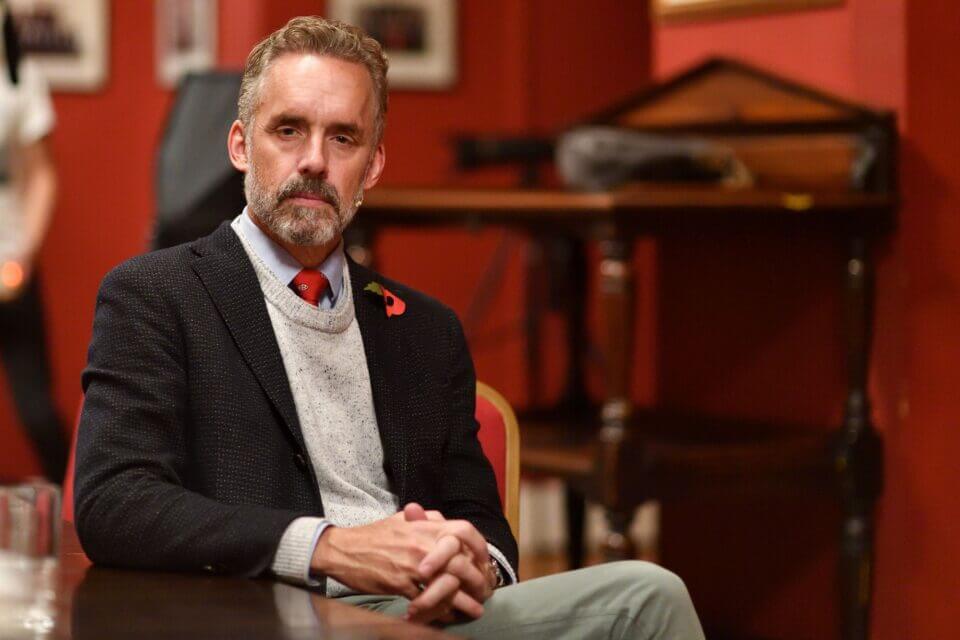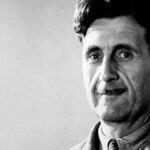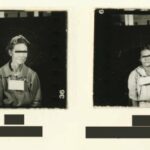
“The world was on this brink of this fiery hell when Jordan Peterson read Solzhenitsyn and began to turn from despair toward hope.”
“…It was Solzhenitsyn who most crucially made the case that the terrible excesses of Communism could not be conveniently blamed on the corruption of the Soviet leadership, the ‘cult of personality’ surrounding Stalin, or the failure to put the otherwise stellar and admirable utopian principles of Marxism into proper practice. It was Solzhenitsyn who demonstrated that the death of millions and the devastation of many more were, instead, a direct causal consequence of the philosophy (worse, perhaps: the theology) driving the Communist system. The hypothetically egalitarian, universalist doctrines of Karl Marx contained hidden within them sufficient hatred, resentment, envy and denial of individual culpability and responsibility to produce nothing but poison and death when manifested in the world…”
– An excerpt from Jordan Peterson’s foreword to the 50th Anniversary edition of Solzhenitsyn’s The Gulag Archipelago
Make no mistake, them’s fightin’ words. This fierce sermon about the gospel written by one of mankind’s greatest uncanonized saints, Aleksandr Solzhenitsyn, was an impetus for naming my biography of Dr. Peterson Savage Messiah. Under the guise of a mild-mannered college professor, Peterson preached the scripture of the prophets: bloody, accusatory, inflammatory, unflinching writings revolting to non-believers but manna to the faithful.
In Solzhenitsyn, Peterson found an eyewitness to the prophecy that hell on earth would reign in the 20th century as prophesied by Friedrich Nietzsche, another tormented and unsung saint of the Peterson catechism. When Nietzsche proclaimed “God is Dead” in 1882, he actually wrote:
“God is dead. God remains dead. And we have killed him. How shall we comfort ourselves, the murderers of all murderers? What was holiest and mightiest of all that the world has yet owned has bled to death under our knives: who will wipe this blood off us. What water is there for us to clean ourselves?”
Nietzsche was not gloating over the death of God as so many atheists celebrated. It was a warning, a curse. His vision accurately foreshadowed the coming 20th century’s depravities of Marxism, Communism, Socialism, Nazism, fascism, nihilism, world wars, race wars, mustard gas, Zyklon B, race lynchings, killing fields, concentration camps and gulags. All of them were creations of the 20th century when hate flourished, when haters found a place to hang their hate. Solzhenitsyn suffered through some of them personally. He survived to see all of them happen in his lifetime and refused to look away.
Peterson had found the true enemy. It was not Russia. It was the inherent evil that ran through every human heart, as Solzhenitsyn said.
Solzhenitsyn eventually found solace and redemption in Christianity. He took crucified humanity down from its cross, laid it in a proper grave and carved its headstone. He identified the source of evil for a new generation and proclaimed it as the evil that “…runs through every human heart.” For Nietzsche, the Enlightenment had killed God, supplanting his grace and wisdom with human pride and arrogance. Solzhenitsyn personally paid the price for this.
In Solzhenitsyn’s footsteps, young Jordan Peterson found the path that led away from the coming, ultimate human folly of the 20th century: mutually assured destruction, nuclear global annihilation. This pinnacle of fatal human arrogance finally revealed that hell was, indeed, now on earth—and even admitted in its name that insanity was now official policy.
This terror had tormented young Peterson since grade school in the 1970’s. He suffered nightmares of charred bodies, ravenous dogs, and a vaporized world of eternal winter. In 1974, Solzhenitsyn’s The Gulag Archipelago was published in the West. It had already been circulated hand-to-hand in secret, mimeographed copies, a death warrant if discovered. It corroded the foundations of the tottering Marxist Soviet Union with every new pair of hands that touched it. Eventually, it was instrumental in collapsing the Evil Empire. And like the prophet Jeremiah’s Old Testament Book of Lamentations, it showed how God’s people had forsaken him, how they now worshipped idols like Joseph Stalin, and how they were prepared to burn their children in an offering to Moloch, the idol of child sacrifice.
The world was on this brink of this fiery hell when Jordan Peterson read Solzhenitsyn and began to turn from despair toward hope. Peterson had found the true enemy. It was not Russia. It was the inherent evil that ran through every human heart, as Solzhenitsyn said. With the help of Solzhenitsyn, Nietzsche, Carl Jung, child psychologist Jean Piaget and many others, Peterson began to crack the code that revealed the enemy’s strategy.
Stepping back from his own brink of hellish insanity, Peterson committed his life to healing human hearts and minds that had become infected with evil. He became a psychologist and social scientist. As he grew in his experience with severely mentally ill patients, he found ways of strengthening them against the many types of purposeful and random evil in the world. To university students, he began to teach what he had learned from these great prophets of the human struggle. He started with the ancient archetypes of good and evil that populated mankind’s collective unconscious discovered by Carl Jung.
Then, following Solzhenitsyn more closely, Peterson began to use the Jewish and Christian Bible as the library of archetypes from our collective unconscious. He began at the beginning with the Book of Genesis and the “logos,” the word of God that went out over “the waters” and created order from chaos. Then, in the Garden of Eden, he saw the warning against the tempting snake of moral corruption, the resulting arrogance before God and its product, the fall of mankind. But, unlike Solzhenitsyn, Peterson continued to maintain his distance from a personal belief in God. In summary, he has said that he did not yet feel he had the personal understanding to believe in God. He just could not accept that God existed based on faith alone. He had not resolved the mystery of God for himself. But he was close.
Perhaps it is the level of suffering that eventually drives one to his knees in submission, in pleading for guidance from God. One suspects that was the case with Solzhenitsyn. New revelations point to the possibility that Peterson may have recently suffered enough to again follow closely in the footsteps of Solzhenitsyn, this time into the mystery of God.
For the past year and some months, Peterson has suffered the horrendous side-effects from the long-term prescribed use of benzodiazepines. Common trade names for this drug began with Librium, later became Valium, then Xanax. Now, there are nearly 100 other names. It is one of the most commonly prescribed drugs in the world and is considered to be a safe, minor tranquilizer. Yet, prescribed benzodiazepines might also be considered—as in Peterson’s own case—an example of the random, inexplicable malevolence of life, like natural disasters, that stalk human beings along with human-generated evil.
Peterson has recently announced on YouTube that he is sufficiently healthy now to return to public life. In that video, he speaks of “…God’s grace and mercy…” that allowed him to survive and regain most of his mental and physical abilities. Again, we see that Solzhenitsyn may have been pivotal in leading Peterson away from madness and self-destruction, first as a young man rescued from nihilism and despair in the contemplation of nuclear holocaust and now as a grandfather redeemed from soul-destroying drug addiction.
As was noted at the beginning of this piece, Peterson wrote the foreword to the 50th anniversary authorized and abridged version of The Gulag Archipelago. As perhaps a testament to Peterson’s lifelong commitment to teaching the text and principles of Solzhenitsyn’s masterpiece, he received, “…the greatest honor of my life” in being invited to write the foreword. It seems like the evil that runs through every human heart has mysteriously bound these two great minds together. What they have witnessed individually—from the corrupted morality in human evil to the random malevolence extant in the world at-large—has brought them together in their private ways before God. May God and every human heart bless and cherish their lives, their memory, and our future together, thanks in part to them.
Jim Proser is the author of Savage Messiah: How Dr. Jordan Peterson Is Saving Western Civilization and No Better Friend, No Worse Enemy: The Life of General James Mattis.











Beautiful piece, Jim, thank you. I found comfort and consolation herein.